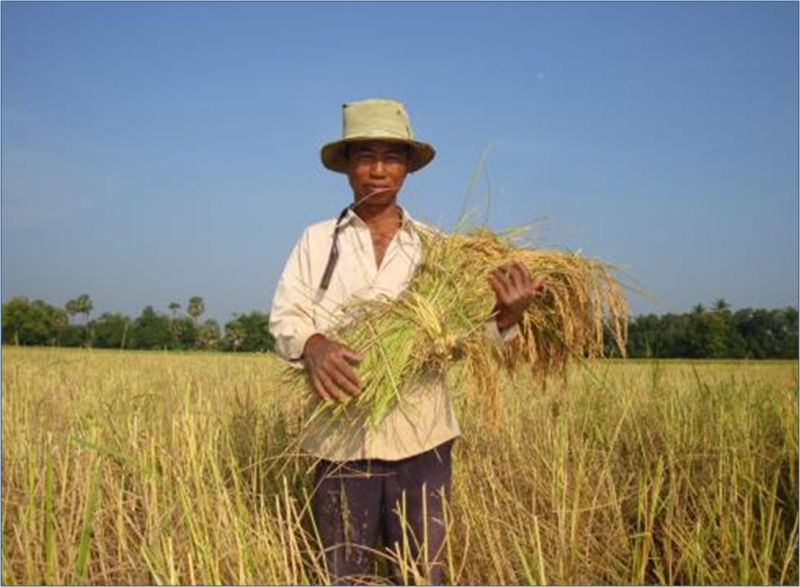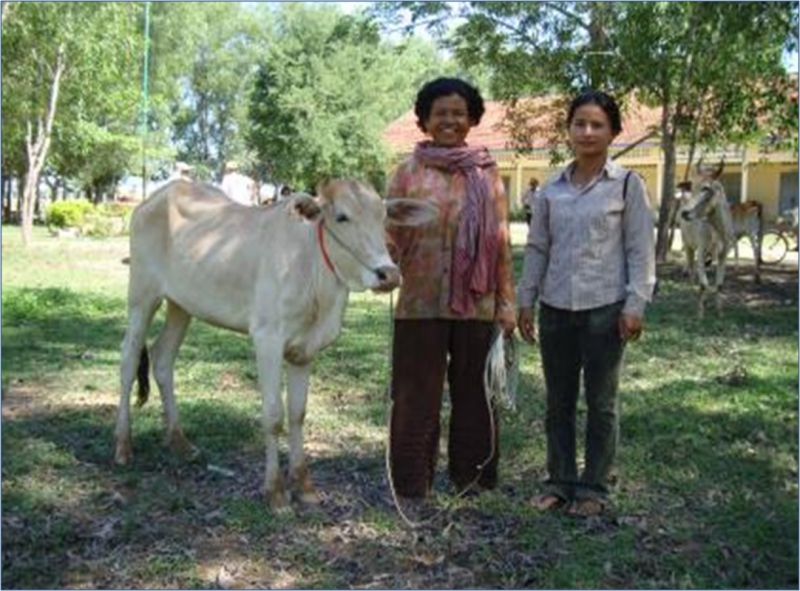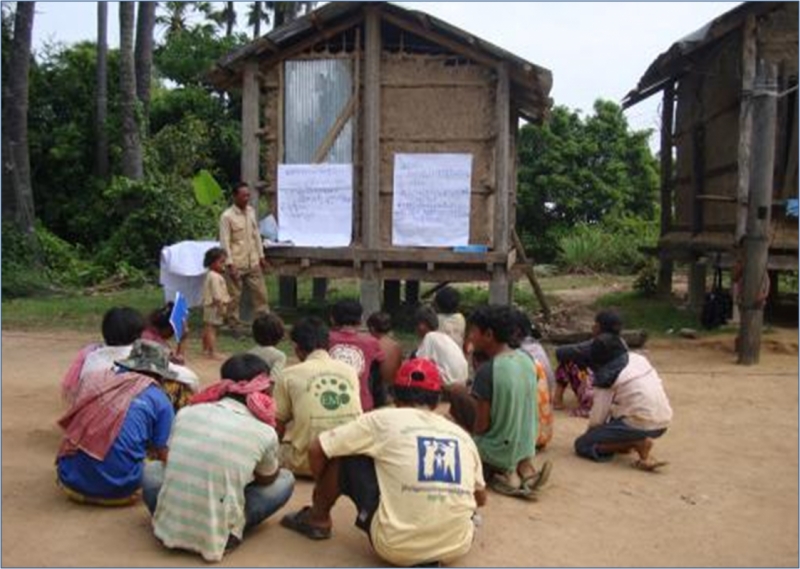




For people who at least have a basic background on economics or development studies, they know that poverty is not simple. It is a web of interconnected factors that feed on each other, therefore making it a complex, vicious cycle.
Take this, for example: a boy was born poor and malnourished. His parents have nothing to feed him, so he grew up frail and sickly. Because they are poor, his parents cannot afford to send him to school, so he grows up illiterate. Because he is weak and uneducated, he cannot land a job. And because no one would hire him, he remains poor, continually suffering from hunger, malnourishment, sickness and unemployment. He finds a wife, who gives birth to a number of children, and the cycle continues.
Looking at the hypothetical situation, one can say that poverty is not only complicated; it is transmissible. That is why for centuries, scholars and various intellectuals have attempted to find cure for this seemingly malignant disease, and yet none has come up with a clear-cut solution.
But it doesn’t mean it cannot be remedied.
The poor, in order to develop, have to start somewhere. We all heard the saying, "Give a man a fish and you feed him for a day; teach a man to fish and you feed him for a lifetime." But how do you teach people how to fish if they are already starving, if they are weak, if they themselves are firmly convinced they can never learn anything?
The answer is to feed them first, then teach them; provide them with the basic necessities – food, shelter, and clothing – and then invest in their capacity.
This is exactly what a project by the Environmental Protection and Development Organization (EPDO) in Cambodia did. The project’s title says it all – Improving the Lives of the Poorest People (ILPP).
ILPP and Poverty Reduction in Cambodia
Implemented by EPDO and supported by the Australian Catholic Relief/Caritas Australia (ACR/CA), ILPP improved the livelihood of the poor and vulnerable people in selected poor areas in Cambodia by empowering them to become self-sufficient. These vulnerable people – mostly child orphans, old people with disabilities, and families with members suffering from HIV and AIDS – are provided with basic needs, financial capital, and training programs on small-scale business handling, marketing, vegetable growing and livestock raising.
So far, ILPP has already enhanced the lives of a total of 133 targeted families in many ways. Mr. Samreth Uth, Executive Director of EPDO, explained that they have achieved this through a carefully-planned scheme which is as follows:
1. Finding: The EPDO team came to visit poor Cambodian communities, and met directly with potential beneficiaries to examine their living conditions and determine the most qualified families for the program.
2. Inclusion: With the initial results at hand, the EPDO team discussed in further detail the conditions of each family and selected the final set of beneficiaries.
3. Support: The EPDO team analyzed the needs of each chosen beneficiary, and provided them with support depending on their current condition. The needs that have been identified so far are as follows:
· Technical support: livestock raising; fruits and vegetable farming; and small business handling
· Education: disaster preparedness; land laws; gender; child protection; and climate change
· Health and sanitation: shelter repair; provision of clean kitchen equipment and water filters; and sending patients to health centers and hospitals for regular check-ups
· Basic needs: Food, including rice, vegetable oil, salt, and fish sauce; and a decent shelter
4. Empowerment: The EPDO team worked closely with their beneficiaries to understand their needs and how exactly they want to achieve them, and provide ample budget for them to actualize their livelihood plans.
Collaborating with their chosen beneficiaries and considering each one special, the EPDO team does not just come up with a one-size-fits-all solution. They understand that the needs of each family varies, so they actually take time to discuss with them the kind of help they needed, and come up with a solution tailored to each of their specific needs. Perhaps this is what makes EPDO’s ILPP special – it is participatory, consultative, and no less than empowering.
Raising Livestock, Growing Crops

Emerging as a common interest of the targeted communities is proper agricultural training, which is one of the core initiatives EPDO has conducted for the ILPP project. This comes as no surprise, since majority of the targeted areas are still heavily-agricultural in terms of livelihood.
To improve the beneficiaries’ agricultural know-how and encourage them to engage in livelihood activities, ILPP has so far provided two training courses about raising animals and growing vegetables. All 32 participants, 19 of which are female, were taught how to raise chicken and ducks, as well as how to feed and provide shelter for them. They were likewise taught how to plant certain vegetable crops, and produce compost fertilizer for their farms.
After the training, 15 families have established their own small home gardens. They planted crops such as mint, lemon grass, and winter melon, and have also prepared cages to raise chickens.
This was just the beginning. While EPDO’s quest to reduce poverty incidences in Cambodia sounds promising, more challenges are yet to be conquered.
Humps along the Road
Although ILPP has already achieved some of its objectives, a number of hurdles are yet to be surmounted along the way.
According to Mr. Uth, one of the problems that the team faces is the beneficiaries’ unwillingness to cooperate. Some of them are not inclined to commit specifically on the livelihood improvement aspect of the project, as a number are only interested in the short-term material gains. Furthermore, some of them are still heavily in debt, which keeps them from saving up their money and investing in their own small businesses.
Moreover, some areas of the project site still do not have sufficient water resources to sustain agriculture-related activities. While most of them wanted to learn about farming, practicing it on their respective areas was deemed impractical, even impossible. Natural disasters such as flooding, specifically from October to mid-November, likewise disrupt the beneficiaries’ economic activities.
Rising Up to the Challenge
But these obstacles are tiny, compared to the broad vision EPDO has for ILPP.
There is a lot more in store for the ILPP beneficiaries. According to Mr. Uth, EPDO aims to build more networks with like-minded NGOs and relevant departments in the government so that they may collaborate in improving the lives of the poor.
Furthermore, they plan to tap the sub-national government to become more responsive and accountable for responding to the needs of the poor families in disaster-prone or climate change-affected areas. Along with this is information-dissemination on the risk and hazards of climate change, so that beneficiaries may fully understand its dangers and their role in lessening its effects.
As part of its aim to empower people, EPDO likewise plans to strengthen already existing initiatives in the area, such as the rehabilitation of water irrigation system, and recognize the beneficiaries’ capacity to manage it themselves.
Heeding the Voices of the Disempowered

Looking at the current situation of ILPP, there is indeed a great promise to improve the lives of the poorest, most marginalized sectors in Cambodia. After all, making sure that the beneficiaries have enough food to eat, a decent place to sleep and a livelihood to get them by, is relatively simple.
Empowerment, however, is a different issue.
Empowering people does not happen overnight. It is a far more complex social struggle; borne out of constant reinforcement, of making people believe that they are capable – that they are actual human beings with the power to improve their own lives. Empowerment is cultivated through years and years of affirmation and reassurance, because just like poverty, empowerment, too, is a cycle.
Picture this, for instance: A woman was empowered. She used to be poor, but because she believes she has a way out of it, she strives to make her life better by working hard. Because her hard work bore fruits, she becomes more and more convinced that she can do better, and that eventually brought her out of poverty and into a decent life. She finds a husband to marry, have kids, and provides a good example of empowerment to them. The cycle lives on.
The same situation could ring true for ILPP’s beneficiaries. With ILPP, the poorest people in Cambodia were given a good place to start. In reference to the popular saying, they were given fish, and were even taught how to fish.
Now it’s time for them to do their own fishing.